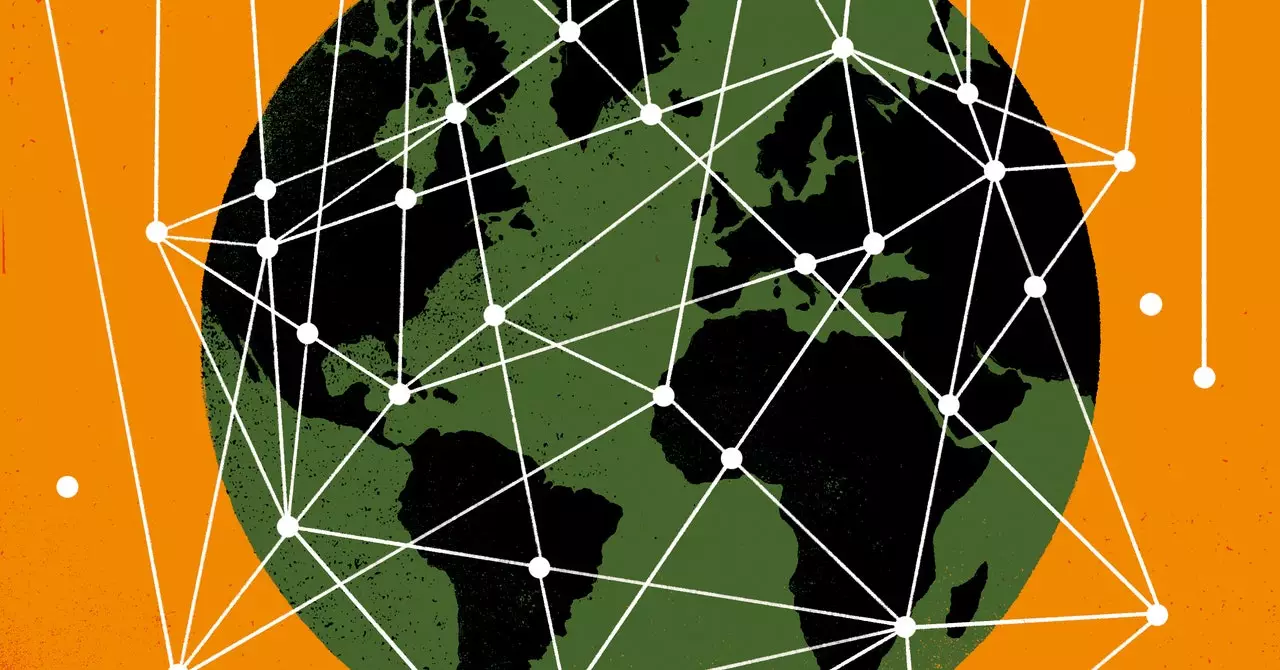As we peer into the future of artificial intelligence, the year 2025 stands out as a potential turning point in the intricate relationship between technology and geopolitics. In the wake of the explosive growth of AI—marked notably by advancements such as OpenAI’s ChatGPT—there appears to be a collective reevaluation among world leaders. The landscape surrounding AI has teetered between a frenzied gold rush driven by investment and innovation, and a pervasive sense of moral panic concerning its implications. This duality has fostered an environment where both enthusiasm and fear coalesce, influencing how nations perceive their interests in the global sphere.
The last few years, especially in 2023, have seen tech luminaries, including figures like Elon Musk and Steve Wozniak, vocalize fears surrounding AI’s potential dangers. With warnings that likened AI developments to historical existential threats such as nuclear warfare or pandemics, the tone has shifted drastically, prompting concerns that may be clouding leaders’ judgments. The investment surge coupled with these stark warnings has created a charged atmosphere around AI that nations are navigating with caution.
The Rise of AI Nationalism
This atmosphere has heralded the rise of what could be termed “AI nationalism,” a concept that flips the narrative of technology as a collaborative tool into one of competition and domination. A salient example of this phenomenon is China’s ambitious strategy to secure its place as a leading AI superpower by 2030, articulated in their “New Generation AI Development Plan.” Such initiatives illustrate a clear intent to establish leadership in AI innovation and further cement geopolitical influence.
In response to this aggressive posture, the United States has implemented measures like the CHIPs and Science Act of 2022, which sought to hinder China’s technological ascent by restricting semiconductor exports. Such actions have been characterized more by a spirit of rivalry than cooperation, framing AI as a geopolitical battleground rather than a field for joint venture and collective progress.
The repercussions of this competitive mindset can be traced back to historical tensions, particularly reminiscent of the Cold War. During that era, the U.S. not only invested heavily in technological supremacy but also leveraged diplomacy to establish frameworks that ensured space was shared by all. The absence of comparable political leadership in the AI sector has been conspicuous, leading to an atmosphere dominated by suspicion and rivalry rather than collaboration.
Expectations for 2025: A Path Toward Diplomacy
However, emerging trends suggest that the tides may be turning. As we venture into 2025, there is an observable shift toward diplomacy and collaborative approaches in AI governance. A landmark event in this evolution will be the AI Summit planned in France, where President Emmanuel Macron aims to redefine the discourse surrounding AI from one dominated by fear to a more constructive dialogue focused on solutions and standards for governance. This reframing signifies a larger trend towards considering AI’s societal impacts, rather than solely its risks.
Moreover, the United Nations has acknowledged the need for inclusivity in discussions surrounding AI, uncovering significant gaps in representation among nations. The UN’s plans for a more collaborative global approach set a precedent that could facilitate dialogue across geopolitical boundaries while harnessing AI’s potential for universal benefit.
In a notable development, tentative diplomatic engagement between the U.S. and China has manifested through the establishment of a bilateral consultation channel on AI. This goodwill gesture may hint at a willingness from even the two principal adversaries in the tech race to seek common ground. The impact of these diplomatic overtures remains to be seen, but they hint at a gradual approach to rethinking competition in favor of collaboration.
The trajectory of AI and geopolitics is at a pivotal juncture as we approach 2025. The burgeoning recognition of the potential for cooperative frameworks may finally overshadow the age of AI nationalism that has dominated recent history. By redirecting energies towards diplomacy, governance, and mutual benefit, nations can transcend the embroiled stakes of competition. As the world prepares for significant summits and diplomatic engagements, the hope for a future where AI serves humanity as a collective rather than a divisive force becomes ever more tangible. The choices made in the coming years will undoubtedly shape the landscape of global AI, potentially leading to a landscape defined not by rivalry, but by cooperative advancements that prioritize the common good.

